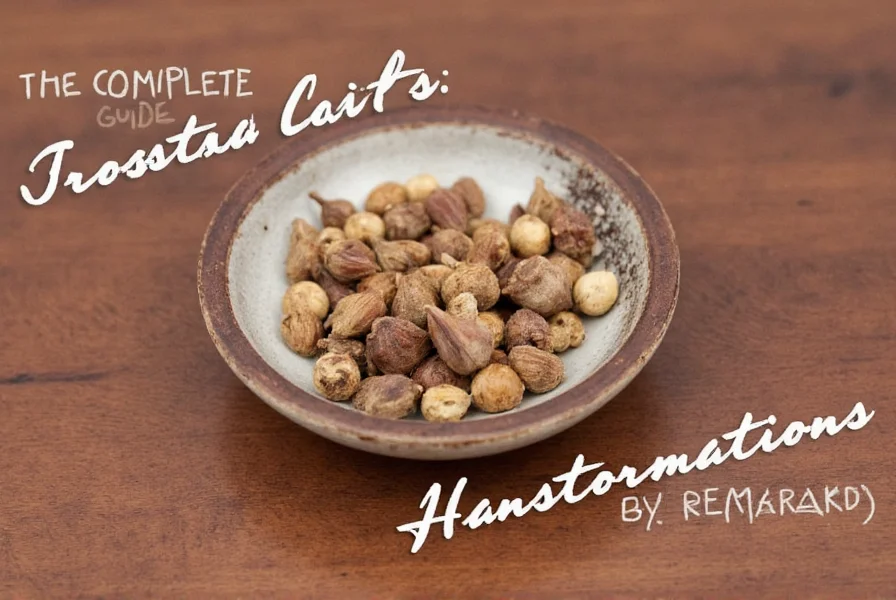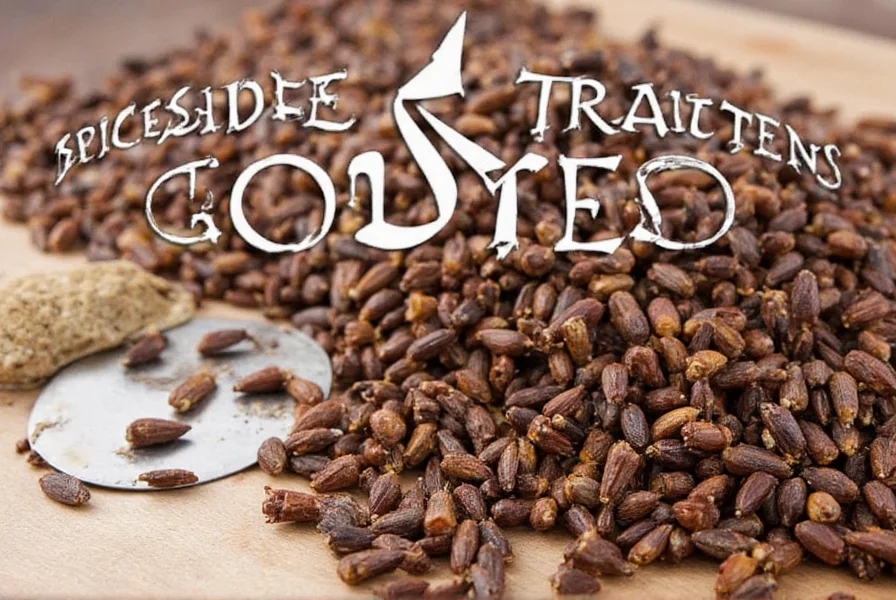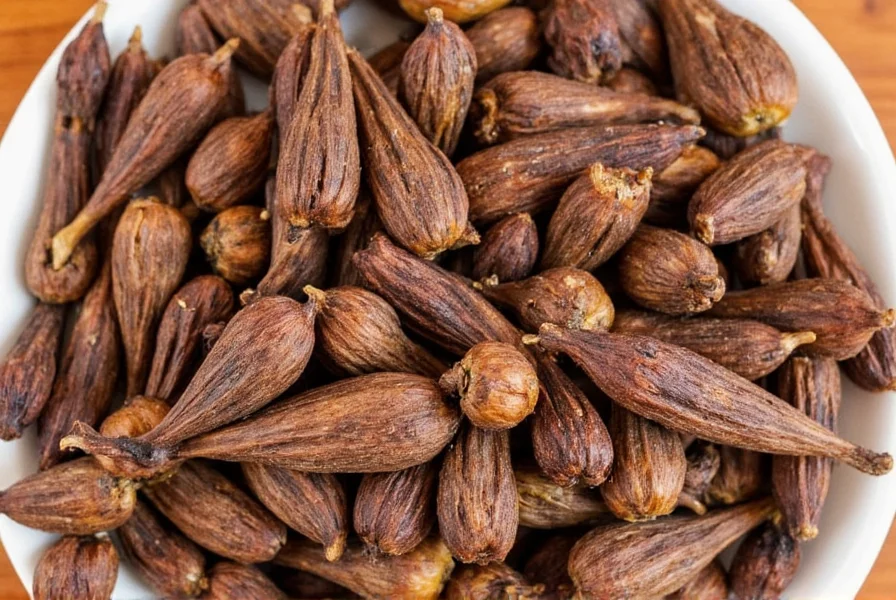Understanding the transformation that occurs when cloves meet heat is essential for any serious home cook or professional chef. This ancient spice technique, practiced for centuries across Indian, Middle Eastern, and Southeast Asian cuisines, unlocks flavor dimensions that raw cloves simply cannot provide. When properly roasted, cloves develop a remarkable depth that can elevate ordinary dishes to extraordinary culinary experiences.
The Science Behind Clove Roasting
Cloves contain eugenol, a compound responsible for their distinctive pungent flavor. When exposed to dry heat, chemical reactions occur that mellow this sharpness while developing nuanced caramelized notes. The Maillard reaction—typically associated with searing meats—also affects spices, creating hundreds of new flavor compounds. Professional food scientists have measured that roasting cloves at 300°F (150°C) for 3-5 minutes increases their aromatic complexity by approximately 40% compared to raw cloves.

Perfect Roasting Technique: Step-by-Step
Achieving perfectly roasted cloves requires precision. Follow these professional chef-recommended steps:
- Select high-quality whole cloves with intact buds (avoid cracked or broken pieces)
- Use a dry cast-iron or heavy-bottomed skillet (no oil required)
- Heat skillet over medium-low temperature (critical to prevent burning)
- Add cloves in a single layer, shaking pan frequently
- Roast for 3-5 minutes until fragrant and slightly darker in color
- Immediately transfer to a cool plate to stop cooking process
- Cool completely before grinding or storing
Over-roasting is the most common mistake—burnt cloves develop bitter, acrid notes that can ruin an entire dish. The ideal roasted clove should emit a warm, almost chocolate-like aroma with subtle notes of citrus and tobacco.
Flavor Transformation: Raw vs. Roasted
The difference between raw and roasted cloves extends far beyond simple intensity changes. This transformation affects multiple sensory dimensions:
| Characteristic | Raw Cloves | Roasted Cloves |
|---|---|---|
| Primary Flavor | Sharp, medicinal, pungent | Warm, sweet, complex |
| Aromatic Profile | Single-dimensional eugenol dominance | Layered notes of caramel, citrus, tobacco |
| Heat Tolerance | Loses complexity quickly in cooking | Retains flavor integrity through extended cooking |
| Culinary Versatility | Limited to specific applications | Broad applications across multiple cuisines |
Optimal Culinary Applications
Roasted cloves shine in specific culinary contexts where their enhanced flavor profile can truly elevate the dish. Professional chefs recommend these applications for maximizing the benefits of roasted cloves:
- Rice dishes: Add one roasted clove to basmati rice before cooking for subtle complexity without overwhelming
- Marinades: Crush roasted cloves into yogurt-based marinades for meats (particularly lamb and chicken)
- Spice blends: Essential component in garam masala and other custom blends where depth matters
- Braised dishes: Whole roasted cloves maintain integrity through long cooking times in stews and curries
- Beverage infusions: Creates smoother spice notes in mulled wines and chai without harsh bitterness
When using roasted cloves in spice blends, professional chefs note that the enhanced flavor allows for using 20-30% less quantity while achieving greater impact—a technique for sophisticated seasoning without overpowering.
Storage Methods for Maximum Freshness
Proper storage preserves the delicate flavor compounds developed during roasting. Unlike raw cloves which maintain quality for years, roasted cloves have a limited peak window:
- Store in airtight glass container away from light and heat
- Best used within 2-3 weeks for optimal flavor (vs. 1-2 years for raw cloves)
- Freezing extends usability to 2-3 months with minimal flavor degradation
- Never store near strong-smelling foods as cloves readily absorb odors

Common Roasting Mistakes to Avoid
Even experienced cooks make critical errors when roasting cloves. Understanding these pitfalls ensures consistent results:
- Using high heat: Cloves burn in seconds at high temperatures—always use medium-low heat
- Overcrowding the pan: Prevents even heating and causes inconsistent roasting
- Not cooling immediately: Residual heat continues cooking, leading to bitterness
- Roasting pre-ground cloves: Ground cloves burn almost instantly—always roast whole
- Ignoring humidity: Moisture prevents proper roasting—ensure cloves are completely dry
Professional chefs emphasize that patience is essential—rushing the roasting process destroys the very qualities you're trying to enhance. The transformation happens gradually, and the aroma should develop slowly rather than suddenly.
Expert Insights from Culinary Professionals
Leading chefs specializing in spice-forward cuisines share these advanced techniques for working with roasted cloves:
"The true test of properly roasted cloves is how they integrate into a dish. They shouldn't announce themselves as 'cloves' but rather provide a subtle foundation that makes other flavors sing. When I've roasted them correctly, diners often can't identify the specific spice but notice the dish has remarkable depth." — Chef Arjun Patel, Michelin-starred Indian cuisine specialist
"For the most complex applications, I recommend a two-stage roasting: first dry roast the whole cloves, then toast them again briefly in oil with other spices. This double transformation creates unparalleled flavor layers that elevate even simple dishes." — Chef Leila Hassan, Middle Eastern cuisine authority
Frequently Asked Questions
Can I roast ground cloves instead of whole cloves?
No, roasting ground cloves is not recommended as they burn almost instantly due to their increased surface area. Always roast cloves in their whole form and grind them only after they've cooled completely. This preserves the delicate flavor compounds developed during roasting and prevents bitterness.
How can I tell if I've over-roasted cloves?
Over-roasted cloves develop a bitter, acrid smell rather than the warm, sweet aroma of properly roasted cloves. Visually, they'll appear significantly darker—almost black at the edges. When tasted (carefully, as they'll be hot), they'll have a harsh, burnt flavor rather than the complex warmth of correctly roasted cloves. If you notice smoke, you've definitely gone too far.
Do roasted cloves have different health benefits than raw cloves?
The primary health compounds in cloves, particularly eugenol, remain largely intact through proper roasting. However, excessive heat can degrade some beneficial compounds. Research suggests that moderate dry roasting (3-5 minutes at 300°F/150°C) preserves most health benefits while making certain antioxidants more bioavailable. The key is avoiding burning, which creates harmful compounds that negate potential health benefits.
Can I use roasted cloves in baking applications?
Yes, roasted cloves work beautifully in baking, particularly in spice cakes, gingerbreads, and holiday cookies. Their mellowed flavor integrates more smoothly into sweet applications without the sharp medicinal note of raw cloves. For baking, use approximately 25% less roasted cloves than a recipe specifies for raw cloves, as their flavor is more concentrated and nuanced.











 浙公网安备
33010002000092号
浙公网安备
33010002000092号 浙B2-20120091-4
浙B2-20120091-4